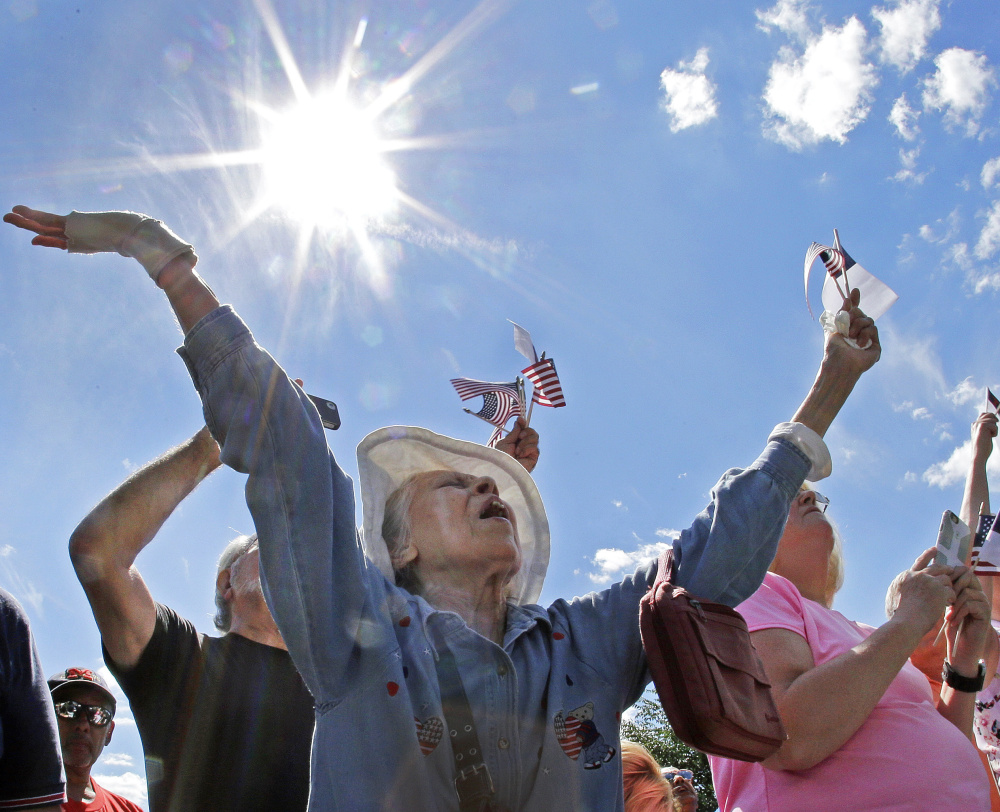About one-third of all Americans think that you have to be a Christian to truly be an American — despite the history of religious pluralism that dates back to the nation’s very earliest days.
In a timely survey released Wednesday afternoon, just as the United States is debating the merits of suspending immigration from seven majority-Muslim countries, the Pew Research Center asked residents of numerous nations what it takes to truly belong in their countries. Americans were far more likely than residents of other countries included in the survey to say that religion was key to sharing in the national identity.
Thirty-two percent of Americans said one should be Christian to really be American, compared to just 13 percent of Australians, 15 percent of Canadians and 15 percent of Europeans who felt the same way about belonging in their homelands.
The same number of Americans – 32 percent – said that being born in the United States is key to being an American. More Americans – 45 percent – said that sharing “national customs and traditions” was important, and many more – 70 percent – said being an American meant speaking English.
Religion was the only question on which Americans were an outlier. On birth, language and customs, America fell in line with other industrialized nations.
While religious minorities have lived in the United States since before the American Revolution – Thomas Jefferson defended the rights of Muslims, and George Washington wrote a famous letter guaranteeing religious liberty to the Jews of Rhode Island – still pastors and politicians alike have frequently described the United States as a “Christian nation.”
Republicans, who are themselves more likely to be Christian, said at a higher rate that one need be Christian to be American: 43 percent compared to 29 percent of Democrats and 26 percent of independents.
One’s own religion and race also strongly affected the answers: Pew found that 57 percent of white evangelical Protestants thought it was very important to be Christian in order to be American, while 29 percent of white mainline Protestants, 27 percent of Catholics and just 9 percent of people unaffiliated with a faith felt the same way.
This opinion is apparently becoming much less popular with the younger generation of Americans, who are less likely to affiliate with a religion.
Send questions/comments to the editors.



Success. Please wait for the page to reload. If the page does not reload within 5 seconds, please refresh the page.
Enter your email and password to access comments.
Hi, to comment on stories you must . This profile is in addition to your subscription and website login.
Already have a commenting profile? .
Invalid username/password.
Please check your email to confirm and complete your registration.
Only subscribers are eligible to post comments. Please subscribe or login first for digital access. Here’s why.
Use the form below to reset your password. When you've submitted your account email, we will send an email with a reset code.